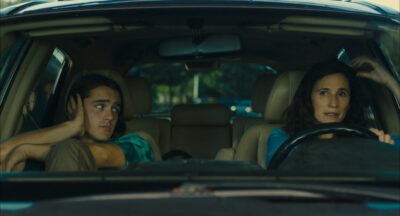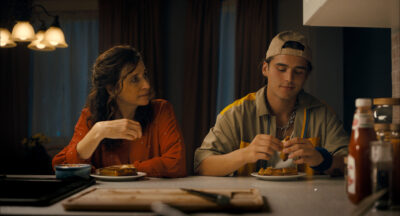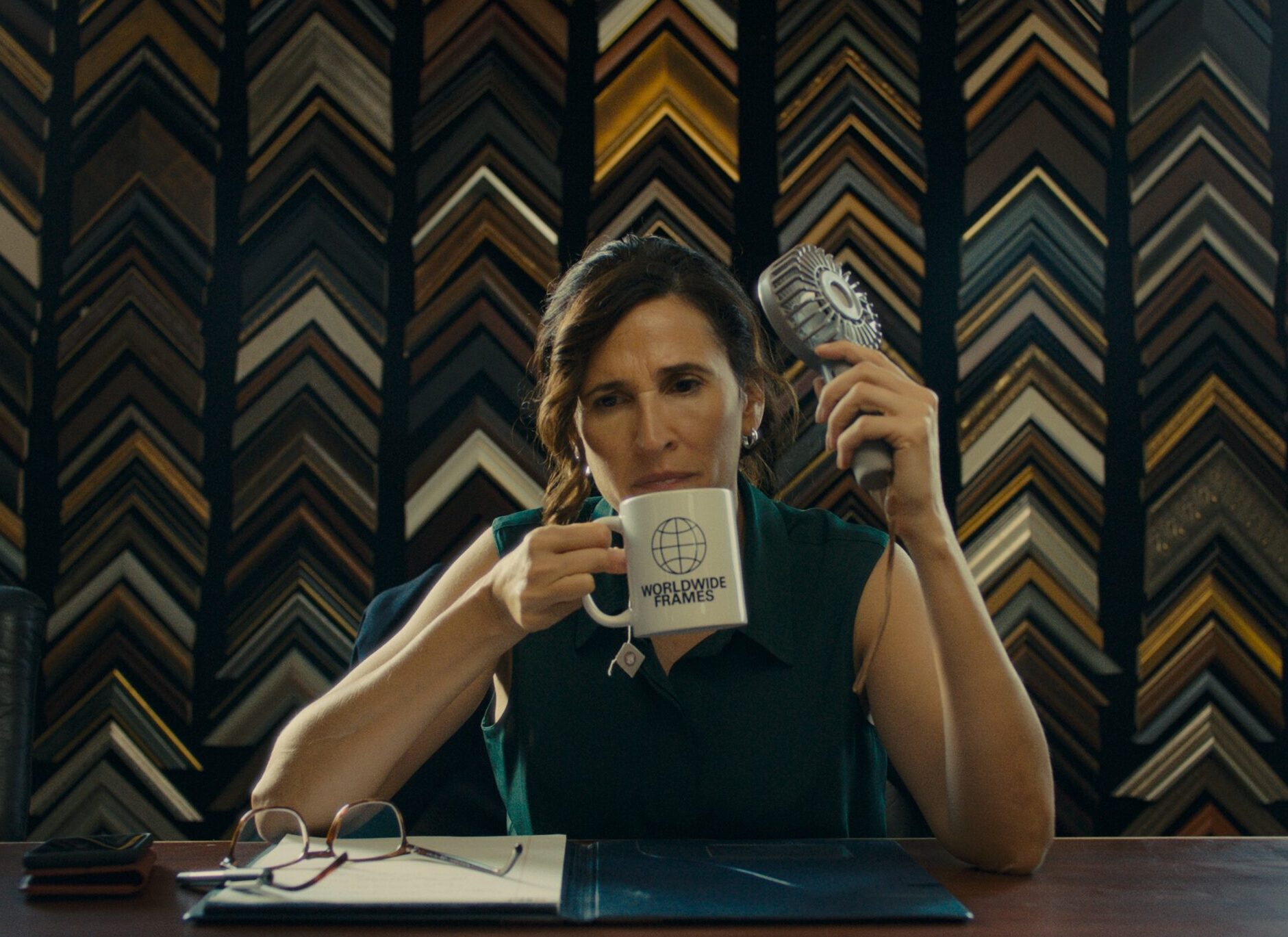In SUZE, a Canadian dramedy written and directed by real-life couple Linsey Stewart and Dane Clarke, Michaela Watkins plays a single mother grappling with the harsh reality of being an empty nester.
With her daughter (played by Ginny and Georgia’s Sara Waisglass) rarely checking in, she ends up connecting with the last person she thought would be worth her time: her only child’s ex-boyfriend. Through this improbable bond, Suze is able to surpass abandonment and feel a newfound sense of self love.
No stranger to comedy, Watkins started her career on SNL and then gained momentum in the feel-good series Casual. Last year, she remained busy promoting several onscreen projects including her latest collaboration with Julia Louis-Dreyfus in You Hurt My Feelings.
Ahead of SUZE’s theatrical release, we connected with Watkins to discuss her experience playing a lead on the verge of menopause, her bond with co-star Charlie Gillespie, and her hopes to do a biopic in the near future.
What drew you to work on SUZE?
I thought the script was so good. How many parts like that are there for women who are bordering on menopause? I’m lucky that I get to do fun stuff, but in the general film zeitgeist, it’s not always the most dimensional characters written for women of a certain age.
I was prejudiced about it. I came in with this notion that it was probably going to be very tropey, but it caught me by surprise. I didn’t know the writers/directors, but I then watched all of their stuff and realized they completely understand the tone. This character had a sense of humour and the situation was so unlikely and I’ve never seen that dynamic before.
As you mentioned, it is very rare for women to see themselves on screen, especially at this time of their lives. Not only the menopause aspect, but also being an empty nester. Even though you don’t have kids of your own, what was your process like to prepare for a character that many women will be able to relate to?
I worried for a second that if I didn’t have kids or was not going through this process right now, would I be able to realistically come to it. The truth is, I’m watching all my friends go through it. I’m very close to my friends’ kids (I’ve seen them come out of them, not to be crude, I was there for their birth). Then they are going to college and my friends are sort of wrecked, or they are celebrating, and I’m also equally unable to believe this hole that this person is leaving in our lives.
You don’t have to have kids to get it and you don’t have to have kids to have that feeling of abandonment. My mom was a single mom and had an embittered divorce and I grew up around that. There were so many similarities between whatever way I was coming at the script.

You worked on the series Casual for several years and in the beginning of that series, you play a divorcé trying to get back into the dating scene. In SUZE, your character is going through something similar. Were there any parallels between your approaches to playing Valerie and Suze?
One of the reasons that I was initially standoffish about wanting to do this immediately was because I thought it could be retread territory for me, because I spent four years in the role of Valerie, a single mom with a teenager that was complicated. The big difference is where they are specifically.
For Valerie, there was a lot of trauma that came way before the pilot episode. Her childhood was really fraught and she had a very codependent relationship with her brother. It’s a show about a sibling relationship and this is a film, not even about a mother-daughter relationship, but the relationship between a mother and daughter’s loser ex-boyfriend. In terms of getting back to the dating scene, Valerie is very encouraged to do it by her brother and she decides she will just jump in. This character (Suze) is very against it and doesn’t even allow herself to do this well. It just hits in a different place to me.
This entire film relies heavily on you and Charlie Gillespie bouncing off of each other. How did you two get in the groove of working together?
He just showed up on day one and he was the character, I don’t know any other way to say it. He was charming, he was sweet, he was energetic. We did one rehearsal read through and I turned to the directors and said, “Yeah, he is perfect.” That chemistry really has to happen or else you don’t have a movie, so I think everybody was nervous about that. What if there isn’t chemistry in this three-week shoot? And it just was there. It was such a crammed shoot and he was a wonderful surprise.

SUZE is able to capture, like you said, the feeling of abandonment and your character’s growth past it. What did you learn from Suze while shooting this project?
Here is what I learned and it is very simple. You don’t have to have a film about zombies or things that explode. Those are not captivating to me. Although it might be interesting to have films about these nihilistic and post-apocalyptic worlds, I think that the only way we survive this kind of time we are in is to sit with people that maybe aren’t the people you would normally get along with. Just go eye-to-eye, have conversations, and find something to love about each other.
You’ve taken on many comedies and dramas, but what is a role you haven’t grappled with yet that you would love to do?
I’m just putting it out there energetically. I really, really, really want to do a very in-depth, period biopic. I don’t know what or who, but I want to take on that challenge desperately. I want to learn an accent and I just want to play a known person very badly.
SUZE arrives in theatres across Canada on February 23.



 Follow Us On Instagram
Follow Us On Instagram
